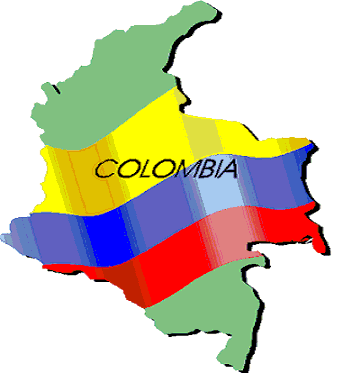Loss of family was worst ordeal, released hostage says
 Bogota - Shackled every night, forced to walk through jungles and subjected to extreme deprivation, a released Colombian hostage said the worst aspect of his captivity was the loss of family, not his physical trials.
Bogota - Shackled every night, forced to walk through jungles and subjected to extreme deprivation, a released Colombian hostage said the worst aspect of his captivity was the loss of family, not his physical trials.
Alan Jara, a former governor of the central Colombian province of Meta who was held hostage by leftist rebels for seven and a half years, said Wednesday that enduring the absence of his family was tougher than being bound and abused.
A day after his release by the Revolutionary Armed Forces of Colombia (FARC), he spoke to reporters about his experiences of being tied up by the rebels each night, walking through inhospitable terrain and rounded up into camps made of wire mesh.
But the most difficult part was missing out on time with his family. Jara, 51, spoke of the irrevocable loss of missing his son Alan Felipe's growing years. When Jara was taken hostage on July 15, 2001, his son was just a child. He returned to find Alan Felipe a strapping teenager.
On Tuesday, after his release, Jara arrived in Meta capital Villavicencio in a Brazilian Army helicopter. "I am free. I have rested for seven-and-a-half years, now it's time to work," he said, after an emotional reunion with his family.
According to other former hostages and from letters that he managed to send to his family, Jara - who studied engineering in the Ukraine in the 1970s - passed time by teaching fellow hostages English and Russian.
Jara said he had to divide his fellow hostage "students" into two groups as some had become quite proficient in both languages. Two soldiers still held by FARC, General Luis Mendieta and Captain William Donato, now speak Russian fluently, Jara said.
He spoke of his time in the Ukraine, where he spent seven years, and said there was no one there to speak Spanish with. "I even had to dream in Russian," he said.
Jara had harsh words for Colombian President Alvaro Uribe. "It is not possible for them (the state) to tell our families: 'No, it was not us who kidnapped them'. I hoped with all my heart that freedom would come from the government."
He said it was "shameful" that talks failed between FARC and the government of former president Andres Pastrana (1998-2002), who were unable to secure the release of hostages.
"We were a few kilometres away from the area were the dialogue took place," the former governor recalled, as he criticized the government for not doing enough to free those in captivity.
"My advice is to bring them (hostages) back before they die or get killed in an attack."
Jara vowed that now a free man, he would work towards the release of the remaining hostages. He met Uribe late Tuesday and stressed the need to fulfil FARC demands for the release of imprisoned rebels in order to ensure the freedom of the other hostages.
"I want to send FARC a message: We are ready for peace, not for deceit. We are ready for a humanitarian exchange, not to strengthen terrorism," Uribe said after the meeting.
FARC released four hostages - three police officers and a soldier - on Sunday, while former regional legislator Sigifredo Lopez was to be released on Thursday.
In 2008, FARC unilaterally released six former hostages, while a rebel deserted and helped another hostage escape.
Last July, a group of 15 hostages - including former presidential candidate Ingrid Betancourt and three US contractors - were rescued by the Colombian Armed Forces.
FARC is now believed to hold some 800 hostages, most of them for ransom. There is also a group of about 20 police and military officers whom the rebels hope to exchange for imprisoned comrades. (dpa)